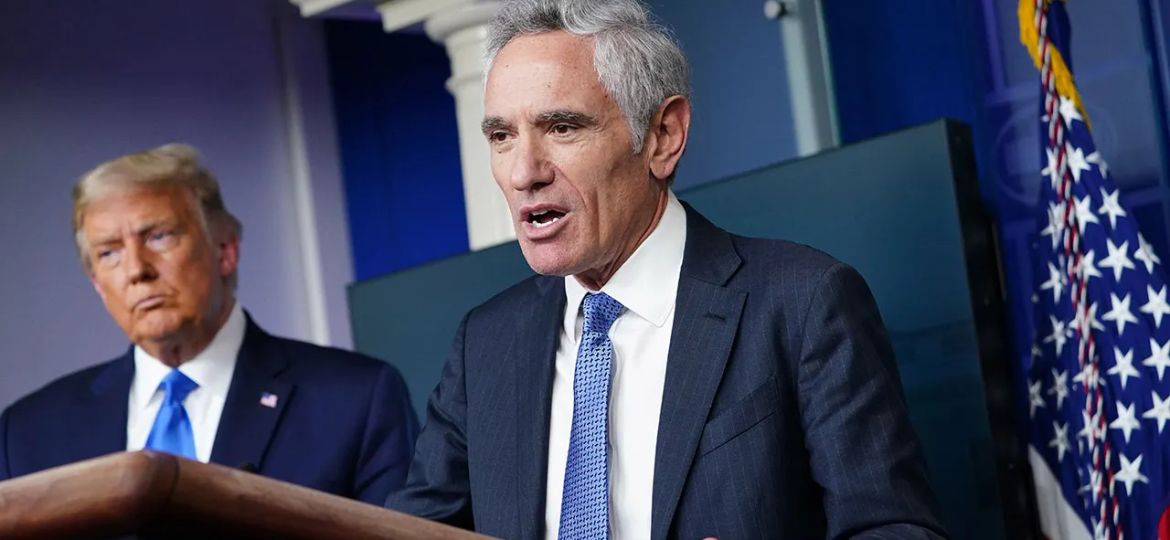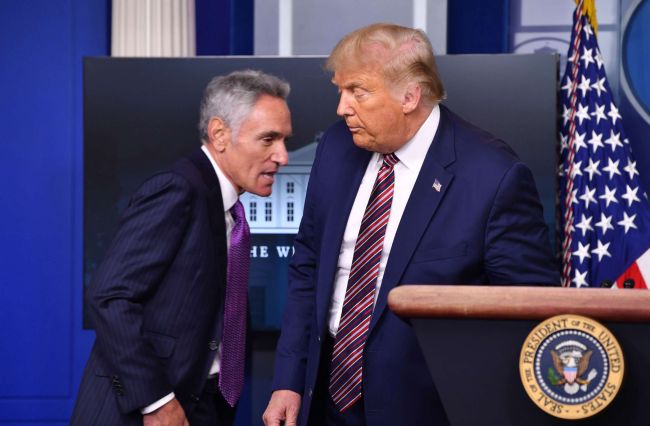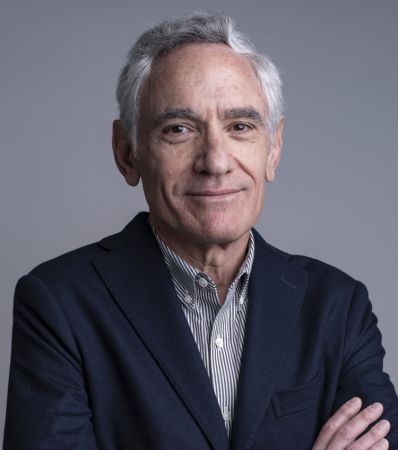
Former Trump Adviser Dr. Scott Atlas Speaks About Post-Covid Effects at CU
The views and claims expressed by Dr. Scott Atlas in this article are solely those of the individual and do not necessarily reflect the stance or position of The Bold or the University of Colorado Boulder. All assertions made by quoted individuals have been rigorously examined against the most up-to-date verified scientific studies and findings available at the time of publication.
Well-meaning intentions are not enough to erase the negative consequences of the COVID era, Dr. Scott Atlas proclaimed during his presentation for the University of Colorado Boulder on Wednesday.
The health policy advisor and former neurology professor detailed his criticism of the United States’ response to the COVID-19 pandemic in his presentation, “Restoring Trust After COVID.” Atlas claimed pandemic-era restrictions and protective measures were ineffective and harmful.
“The data on the masks is irrefutable, it does not stop the spread,” said Atlas.
Atlas is the current Robert Wesson Senior Fellow in health policy at the Hoover Institution of Stanford University. He also served as a special adviser to then-President Trump, on his White House Coronavirus Task Force, formed in January 2020 and staffed with some of the nation’s top infectious disease experts like Dr. Antony Fauci and Dr. Deborah Birx.

Atlas’ addition to the team came as a surprise to many as he is not an expert in infectious diseases, virology, or public health, but instead in magnetic resonance imaging (MRI). The dean of the Brown University School of Public Health, Dr. Ashish Jha, spoke on Atlas’ lack of relevant credentials to NPR in November 2020, “He’s an MRI guy. … He has no expertise in any of this stuff.”
Atlas’ presentation was held at the CU Boulder ATLAS Institute, in collaboration with the University of Colorado’s Bruce D. Benson Center for the Study of Western Civilization, a historically contentious program that has faced public calls for its closure after its hosting of visiting scholar in Conservative Thought and Policy, John Eastman. Mr. Eastman was indicted in Fulton County, Georgia in August 2023 for his instrumental role in former President Trump’s alleged conspiracy to overturn the lawful results of the 2020 presidential election.
Atlas’s disapproving statements of the United States’ COVID-19 policies led to condemnation from his colleagues at Stanford University. Members of Stanford’s Faculty Senate Steering Committee wrote a resolution opposing Atlas, where they condemned him for discouraging the use of protective measures, misconstruing information to the public, and damaging the reputation of Stanford.
“[Atlas] violates the core values of our faculty and the expectations under the Stanford Code of Conduct, which states that we all ‘are responsible for sustaining the high ethical standards of this institution,’” the resolution states.
Despite these criticisms, Atlas claimed these preventative measures led to excess deaths, though, at the time of publishing, there is no conclusive evidence supporting the validity of this claim.
“In the 43 countries and 50 U.S. states, excess deaths were falling before lockdowns, but once lockdowns were instituted, the death toll began rising,” Atlas claimed. The Bold found no specific evidence substantiating this claim, though one study conducted by the National Institute of Health (NIH) suggests a total increase of excess deaths during the pandemic in Florida, but does not attribute this directly to the implementation of protective measures, opposing Atlas’ assertions.
Atlas praised Sweden for its approach to the pandemic, discussing how Sweden did not enforce lockdowns, school closures or mask mandates, and instead encouraged citizens to follow safe practices, but ultimately left the decision up to individuals with the exception of some restrictions on large gatherings.
“Sweden did the best, no matter what anyone else says,” asserted Atlas.
He also discussed the role of teachers and university faculty during the pandemic. According to Atlas, educators hold a lot of responsibility for what he dubbed the “Birx-Fauci lockdowns,” in reference to his colleagues on the White House Coronavirus Task Force, the now former director of the National Institute of Allergy and Infectious Diseases, Dr. Antony Fauci, and the task force’s leader, Dr. Deborah Birx. He stated that teachers and young children were an overall low-risk group of people, making school closures unnecessary.

“America’s teachers failed our children,” Atlas alleged.
Near the end of Atlas’ presentation, he stated a single way to restore trust and freedom in the United States- citizens must have more courage. Atlas explained that Americans need the bravery to stand up against policies they disagree with, such as he did with pandemic restrictions.
“Individuals with integrity must stand up … We have a massive deficit of courage in this country,” Atlas professed.
At the end of his presentation, Atlas highlighted a quote by English writer and philosopher G. K. Chesterton (1874-1936), and concluded that, if nothing else, he hoped for his audience to have one takeaway- “Right is right, even when nobody does it. Wrong is wrong, even if everybody is wrong about it.”
It is our editorial policy to present factually accurate and verified information to our readers. However, readers are always encouraged to independently verify statements and form conclusions based on the evidence at hand. The Bold is fervently committed to journalistic integrity and providing readers with reliable, evidence-based information. Read our Mission Statement for more information on our dedication to responsible journalism.

